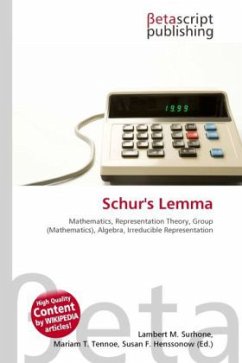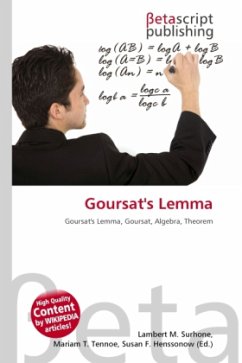High Quality Content by WIKIPEDIA articles! In mathematics, Schur's lemma is an elementary but extremely useful statement in representation theory of groups and algebras. In the group case it says that that if M and N are two finite-dimensional irreducible representations of a group G and is linear map from M to N that commutes with the action of the group, then either is invertible, or = 0. An important special case occurs when M = N and is a self-map. The lemma is named after Issai Schur who used it to prove Schur orthogonality relations and develop the basics of the representation theory of finite groups. Schur's lemma admits generalisations to Lie groups and Lie algebras, the most common of which is due to Jacques Dixmier. If M and N are two simple modules over a ring R, then any homomorphism f: M N of R-modules is either invertible or zero. In particular, the endomorphism ring of a simple module is a division ring.
Bitte wählen Sie Ihr Anliegen aus.
Rechnungen
Retourenschein anfordern
Bestellstatus
Storno








